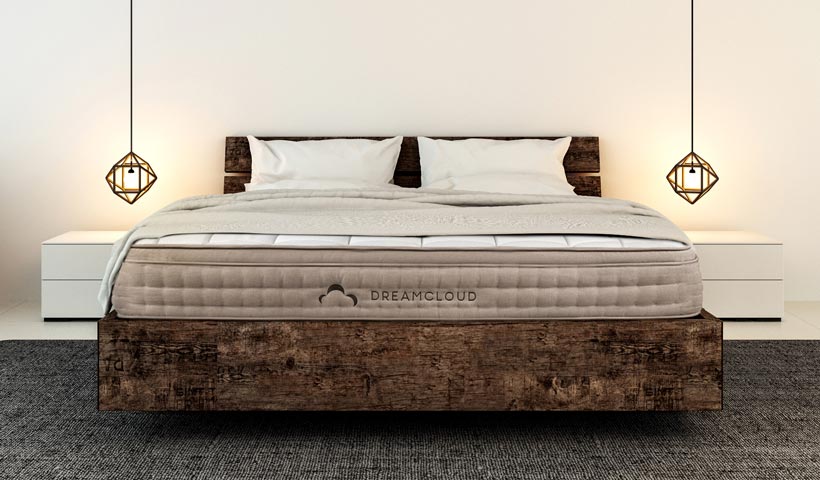
People spend an awful lot of time on their mattresses, but they often don't give them enough thought. It's time to start thinking about your mattress, though. It's really quite amazing how many aspects of your life can be affected by your bed.
How Does Your Mattress Impact Your Life?
Your mattress has a lot to do with the quality and quantity of sleep that you get every night. If it's not right, it can lead to chronic aches and pains, decreased time spent asleep, and lower quality of the sleep that you do get.
Without proper sleep, you may experience some or all of the following, and this is not an exhaustive list:
- Impaired memory and learning (Sleep, Learning, and Memory, 2007).
- Increased inflammation and possibly increased risk of heart disease (Meier-Ewert HK1, 2004).
- Increased stress.
- Decreased sex life.
- Increased risk of car accidents (White Paper: Consequences of Drowsy Driving, n.d.).
- Increased risk of colds and other illnesses (Sheldon Cohen, William J. Doyle, Cuneyt M. Alper, & al, 2009).
- Decreased pain threshold leading to increased pain levels (Onen SH1, 2001).
While there are certainly lots of things that can negatively impact the sleep that you get, including stress, medical problems, alcohol, caffeine, heavy foods, exposure to blue light from digital screens, and countless others, it's also critical to think about the role your mattress might be playing.
Want a Great Night's Sleep? Look for a Hybrid Mattress
A great mattress should have the following features:
- Good support
- Contouring surface
- Comfortable top
- It can be tough to find a mattress that has all three of these things. Sometimes good support comes with an unyielding surface that can lead to pressure points which wake you up often throughout the night. A mattress that contours well, cradling your body nicely, may not have the strength and support necessary to keep from forming divots that become uncomfortable over time. It's necessary to find a hybrid mattress with several components placed in the proper order to achieve the goal of a good night's sleep.
DreamCloud Hybrid Mattresses Have the Right Components
DreamCloud makes great hybrid mattresses with the support of strong coils, the contouring ability of memory foam, and the coziness of a cashmere blend top. They can help you ensure that your mattress isn't the reason you're not getting good sleep, and then you can adjust other things as necessary.
DreamCloud also has free shipping and a fantastic 365-night sleep trial period which allows you to return your mattress if it's not working for you within a year. The warranty is a great one, too, and these mattresses are lower in cost than many others with fewer perks.

What to Do Once You Have the Right Mattress
Having the right mattress should immediately improve the quality and quantity of your sleep. If you have other contributing factors negatively affecting your sleep, here are some ways to combat them:
- Be sure you have a good, relaxing bedtime routine that doesn't involve screens. Take a warm bath, listen to soft music, and do some yoga with deep breathing.
- Get your bedroom as dark as possible and be sure it's nice and cool. Most people sleep better in a cool room than they do a warm one.
Avoid caffeine and alcohol for at least a few hours before bed. While alcohol may help you fall asleep initially, it often interrupts sleep later in the night.
References
- H K Al Khatib, S. V. (2016, Nov. 2). The effects of partial sleep deprivation on energy balance: a systematic review and meta-analysis. Retrieved from nature.com: DOI: doi:10.1038/ejcn.2016.201.
- Meier-Ewert HK1, R. P. (2004, Feb. 18). Effect of sleep loss on C-reactive protein, an inflammatory marker of cardiovascular risk. Retrieved from pubmed.gov.
- Onen SH1, A. A. (2001, March 1). The effects of total sleep deprivation, selective sleep interruption and sleep recovery on pain tolerance thresholds in healthy subjects. Retrieved from pubmed.gov.
- Sheldon Cohen, P., William J. Doyle, P., Cuneyt M. Alper, M., & al, e. (2009, Jan. 12). Sleep Habits and Susceptibility to the Common Cold. Retrieved from jamanetwork.com.
- Sleep, Learning, and Memory. (2007, Dec. 18). Retrieved from healthysleep.med.harvard.edu.
- White Paper: Consequences of Drowsy Driving. (n.d.). Retrieved from sleepfoundation.org.
- Zohar D1, T. O. (2005, April 1). The effects of sleep loss on medical residents' emotional reactions to work events: a cognitive-energy model. Retrieved from pubmed.gov.


